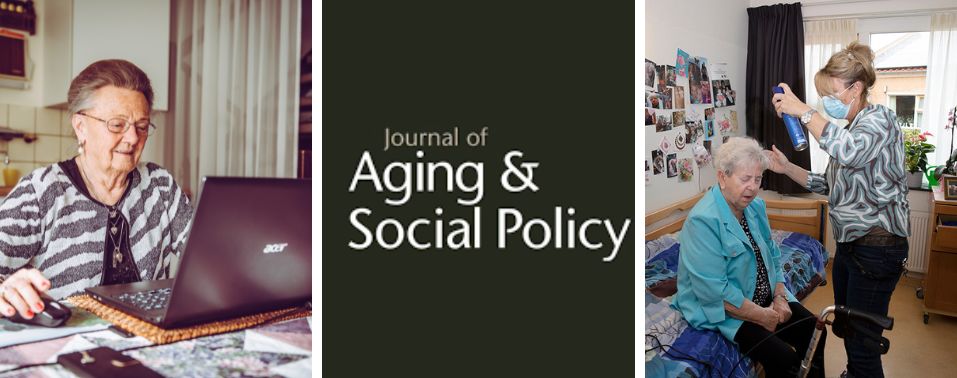TOWARDS AGE-FRIENDLY POLICIES
The governmental COVID-19 policies worldwide reflect the national levels of economic and political development, and the cultural contexts for implementation. Furthermore, they are closely linked to the national policies on aging and long-term care. As a result, the COVID-19 policies lead to highly varied results worldwide. In the Netherlands the measures that were introduced, were accompanied by public discourses that were questioned with regard to their ageism, including so-called compassionate ageism. This type of ageism, implicit and difficult to detect, is based on the perception of older people as warm and likable but nonetheless incompetent and helpless. Literature points out that many policy measures that were intended to be age-friendly and to protect older people, turned out to be inherently ‘ageist,’ demonstrating a paternalistic behaviour toward older people by labelling them collectively as vulnerable. These findings underline the necessity to assess the age-friendliness of policy measures in times of crisis.
WHO framework
Protective measures that were taken during the COVID-19 pandemic, targeted older people as an at-risk group. How did older people in the Netherlands experienced the COVID-19 measures and policies introduced by the Dutch government? In our study we used the framework for age-friendliness of the World Health Organization (WHO), who define age-friendliness as ‘encouraging active aging by optimizing opportunities for health, participation and security in order to enhance quality of life as people age’. The framework allows for a broad assessment of the COVID-19 policies, as it incorporates eight areas: outdoor spaces, transportation, housing, social participation, respect and social inclusion, civic participation and employment, communication and information, and community and health services. We focused on the experiences of 74 older Dutch adults in the first and the second wave of the pandemic, to find out the impact in the earlier mentioned areas, and the lessons which can be learnt to better respond to a similar situation in the future.
Age-friendliness
The term ‘age-friendly’ is well-known in the Netherlands, among local policy makers, academic researchers, social- and care professionals and older people themselves who take part in the participatory research projects. Several Dutch cities already joined the WHO’s network, and by now several areas of age-friendliness have been incorporated in local policies. This study helps to understand whether age-friendliness has been incorporated in the Dutch governmental policy during the COVID-19 pandemic. The Dutch COVID-19 policies were predominantly developed on the basis of information provided by (bio)medical experts. The response of the government took time, which generated public critique, given the high death rate among older people, increased loneliness and limited freedom due to the lockdown.
Key points
The results of our analysis indicate that older people feel negatively affected in the areas of social participation, respect and social inclusion. Furthermore, the measures concerning communication and the health services were experienced as age-unfriendly. An important underlying issue of the COVID-19 measures is limitation of individual autonomy. The following key points can thus be made:
- A crisis such as a pandemic requires policies, based on interdisciplinary and experiential knowledge.
- Policies directed at older people can be experienced as ageist if the heterogeneity of that group is not considered.
- Policies directed at older people will benefit from examination within the WHO conceptual framework of age-friendliness ex ante and ex post.
From: Toward Age-Friendly Policies: Using the Framework of Age-Friendliness to Evaluate the COVID-19 Measures from the Perspectives of Older People in the Netherlands. Journal of Ageing & Social Policies, March 2023. Elena Bendien, Miriam Verhage, Jolanda Lindenberg, Tineke Abma.



